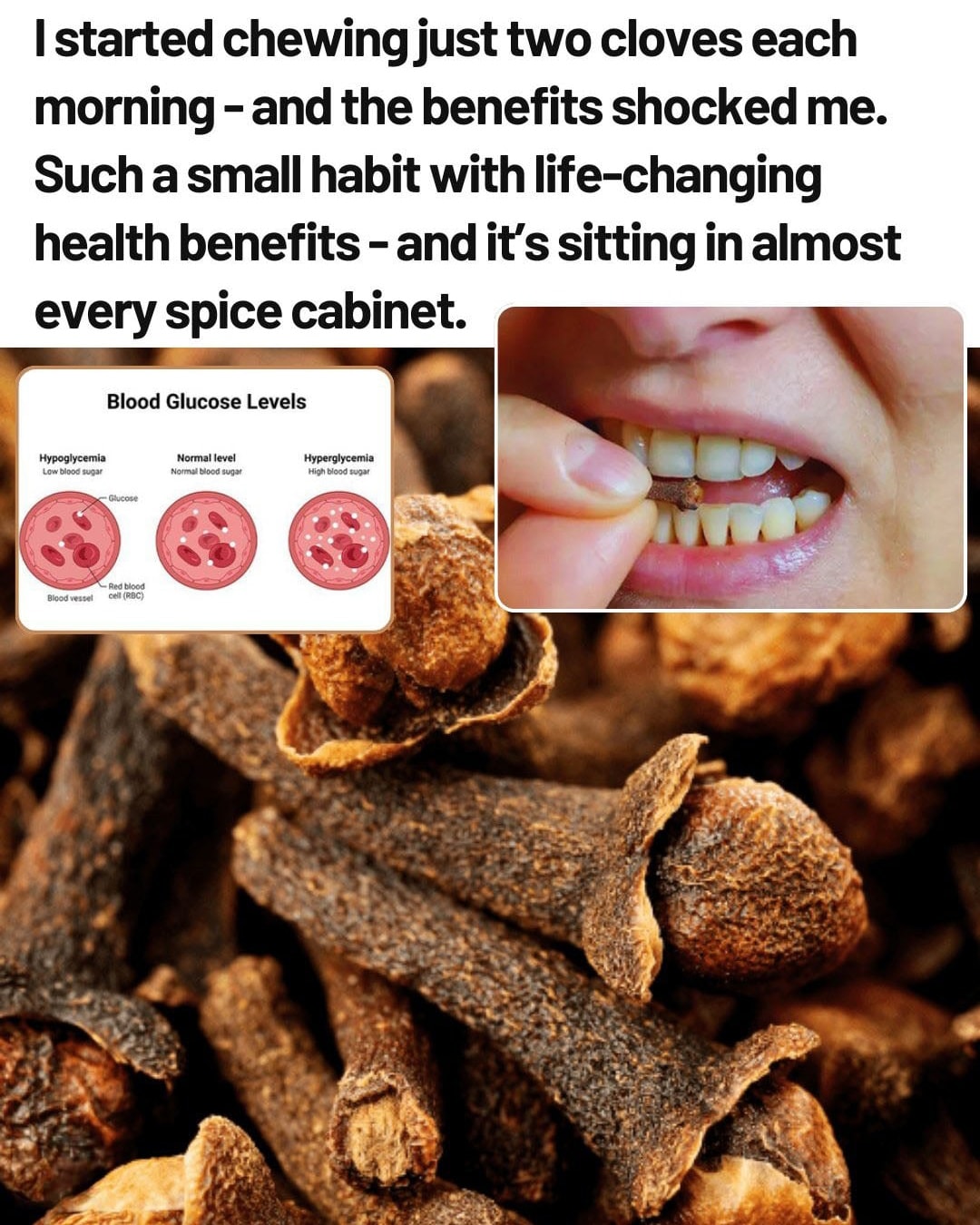Cloves are a familiar kitchen spice, prized for their warm, slightly sweet flavor that enhances both savory and sweet dishes. But beyond their culinary role, cloves contain powerful natural compounds with notable health benefits. This guide covers how cloves grow, their potential health advantages, traditional uses, possible risks, and practical ways to include them in your diet.
Key Health Benefits of Cloves
The main bioactive compound in cloves is eugenol, a substance with antibacterial, anti-inflammatory, and antioxidant properties long valued in Chinese and Ayurvedic medicine. While research is ongoing, studies suggest cloves may offer several health benefits.
1. Support for Oral Health

Eugenol helps reduce harmful bacteria in the mouth, lowering the risk of plaque, cavities, and gum disease. Clove oil has traditionally been applied to relieve toothaches and soothe gum inflammation. It is also used in some herbal mouthwashes. However, concentrated clove oil should not be swallowed, and persistent dental pain should be evaluated by a dentist.
2. May Help Regulate Blood Sugar

Some studies suggest eugenol could improve insulin sensitivity, supporting healthy blood sugar levels. This makes cloves potentially beneficial for people with diabetes or prediabetes — but they are not a substitute for prescribed treatments. Moderate use in cooking or tea is generally safe, but concentrated forms should be discussed with a healthcare provider.
3. May Help Lower Blood Pressure
Compounds in cloves may promote vasodilation — relaxing and widening blood vessels — and reduce oxidative stress, both of which can support healthy blood pressure. While they may complement a heart-healthy lifestyle, cloves should never replace prescribed blood pressure medications.
4. Potential Anti-Can.cer Properties
Eugenol’s antioxidant and anti-inflammatory effects have prompted research into its role in inhibiting cancer cell growth. Early findings are promising, but more studies are needed. Cloves should be seen as a supportive dietary component, not a treatment.
5. Relief for Itchy Skin

Cloves are a familiar kitchen spice, prized for their warm, slightly sweet flavor that enhances both savory and sweet dishes. But beyond their culinary role, cloves contain powerful natural compounds with notable health benefits. This guide covers how cloves grow, their potential health advantages, traditional uses, possible risks, and practical ways to include them in your diet.
Key Health Benefits of Cloves
The main bioactive compound in cloves is eugenol, a substance with antibacterial, anti-inflammatory, and antioxidant properties long valued in Chinese and Ayurvedic medicine. While research is ongoing, studies suggest cloves may offer several health benefits.
1. Support for Oral Health

Eugenol helps reduce harmful bacteria in the mouth, lowering the risk of plaque, cavities, and gum disease. Clove oil has traditionally been applied to relieve toothaches and soothe gum inflammation. It is also used in some herbal mouthwashes. However, concentrated clove oil should not be swallowed, and persistent dental pain should be evaluated by a dentist.
2. May Help Regulate Blood Sugar

Some studies suggest eugenol could improve insulin sensitivity, supporting healthy blood sugar levels. This makes cloves potentially beneficial for people with diabetes or prediabetes — but they are not a substitute for prescribed treatments. Moderate use in cooking or tea is generally safe, but concentrated forms should be discussed with a healthcare provider.
3. May Help Lower Blood Pressure
Compounds in cloves may promote vasodilation — relaxing and widening blood vessels — and reduce oxidative stress, both of which can support healthy blood pressure. While they may complement a heart-healthy lifestyle, cloves should never replace prescribed blood pressure medications.
4. Potential Anti-Can.cer Properties
Eugenol’s antioxidant and anti-inflammatory effects have prompted research into its role in inhibiting cancer cell growth. Early findings are promising, but more studies are needed. Cloves should be seen as a supportive dietary component, not a treatment.
5. Relief for Itchy Skin


